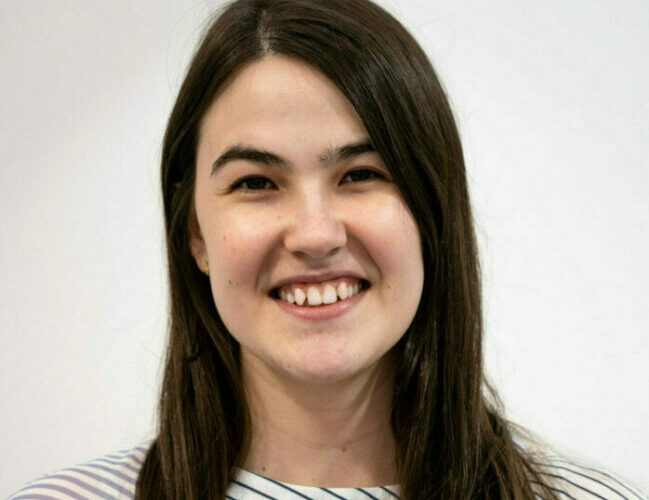IMDEA Networks

Defensa Tesis Doctoral: A Characterization of mobile network services to assess the impact of network slicing in a nationwide scenario

Cristina Márquez, Estudiante de doctorado externo, IMDEA Networks Institute y Universidad Carlos II de Madrid
PhD Defense
Several businesses are nowadays becoming more and more aware of the potential that lies beneath Big Data. From social media ‘titans’ and healthcare companies, to the mobile industry that propelled them, 5th Generation mobile network (5G) will be a fundamental factor that will drive our new reality. Current mobile service usage has been explored for data-driven organizational growth in the touristic sector, as it allows forecasting hotel occupancy rates or targeting customers. However, mobile data is continuously increasing, and therefore it is enormously important to analyze such data for networking purposes.
Previous Ericsson Mobility Reports claimed that by the end of 2022 the total monthly traffic associated with mobile devices would be 77 exabytes (EB), representing 20% of the total Internet Protocol (IP) traffic around the world. They also declare that 50 EB/month would come from 2nd Generation mobile network (2G), 3rd Generation mobile network (3G), and 4th Generation mobile network (4G) devices. In terms of 5G subscriptions, it is expected to reach up to 2.8 billion subscriptions globally by the end of 2025, accounting for about 30% of total mobile subscriptions. Experts stake out that by the year 2020, 1.7 megabytes of data will be generated every second for every person on the planet, forcing the network to evolve and adapt to challenging new demands.
Network providers not only deal with the deployment of the required resources to support this growth, but also the potential newcomers into the business, and the stringent conditions of the distinct services to be provided. One of the features proposed to face this dilemma is using the network slicing technique. It allows to transform and orchestrate a 5G network by creating multiple logical instances (i.e., slices) on top of it, while Big Data would provide the specifications of the services’ traffic dynamics to be served. In this way, operators achieve the best allocation of resources.
This thesis contributes to the ongoing Network Slicing research, assessing a nationwide scenario. Our results show mobile traffic similarities and differences across time, space, and frequency domains, whereas we intend for distinct service clusterizations that would enhance the network efficiency in terms of resource management. For instance, we show that benefits are achieved when considering the top 10 consuming Network Slice (NS). In addition, we could observe mobile service similarities in the spatial domain, while the spectral and time domains open the door for wavelets uncertainty, where we point future directions to address this research branch. Moreover, we propose two data-driven algorithms that shed light on the trade-off between complexity and multiplexing efficiency derived from the network slice specifications, both exhibiting promising performances (e.g., leading to a new architecture for traffic balancing in the cloud and edge clusters, with 60% and 400% gain in efficiency respectively and 1/3 of dedicated resources).
About Cristina Márquez
Cristina Marquez is a PhD student within the NETCOM research team at Universidad Carlos III de Madrid (UC3M). Her areas of research interest are Big Data, Resource Management, Data Analytics and Mobile Networks (5G). She obtained her bilingual BSc in Telecommunication Engineering from UC3M in 2015. She enrolled right away in a bilingual Double Master Degree at the same University, where she completed the MSc degree in Telematics Engineering in 2017 and in Telecommunication Engineering in 2018, while she was pursuing her PhD in the field of Telematics Engineering.
She published 2 papers in prestigious international conferences such as ACM MobiCom (Core A* ranking) and ACM CoNEXT (Core A ranking) in her first year as PhD, completing the PhD program minimum requirements.
Her work as a Data Scientist raised the interest of MIT Senseable City Laboratory, a lab she visited during 2020 as a NGI Explorer.
She received 4 awards during her PhD: award of excelence from UC3M (2018, 2020), best MSc Thesis from COIT-AEIT (2019) and Grace Hopper Celebration Scholarship.
La defensa de tesis se realizará en inglés. Debido a la crisis del coronavirus la defensa se realizará en remoto.
Conexión disponible en este enlace: https://eu.bbcollab.com/guest/e256d2680b1b417c92baac3ab6b44763
Supervisor de tesis: Dr. Albert Banchs, IMDEA Networks Institute, Spain and University Carlos III of Madrid, Spain
Universidad: Universidad Carlos III de Madrid, España
Programa de doctorado: Ingeniería Telemática
Miembros del tribunal:
- Presidente: Dr. Antonio de la Oliva, Profesor Titular, Universidad Carlos III de Madrid, España
- Secretario: Dr. Andrés García Saavedra, Senior Researcher, NEC Laboratories Europe, Heidelberg, Alemania
- Portavoz: Dra. Andra Lutu, Associate Researcher, Telefónica I+D, Barcelona, España
Más información
- Tesis doctoral: “A Characterization of mobile network services to assess the impact of network slicing in a nationwide scenario”
- Publicaciones de IMDEA Networks
- Equipo de investigación de IMDEA Networks
- Red de Alumni

